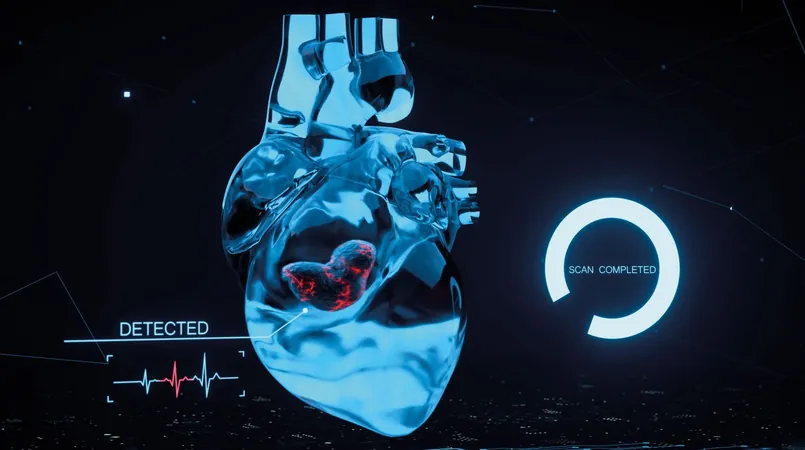
Revolutionary AI-Enhanced ECG Predicts Heart Failure Risk Like Never Before!
2025-04-17
Author: Mei
AI Meets ECG: A New Dawn in Heart Health
In a groundbreaking international study, researchers have unveiled a powerful new method for predicting heart failure risk using a combination of artificial intelligence (AI) and a simple electrocardiogram (ECG) test. This innovation can be performed easily in outpatient settings, making it a game-changer for cardiovascular health!
Published in JAMA Cardiology, the research highlights that an AI algorithm detecting left ventricular systolic dysfunction—which signals the early onset of heart failure—can elevate the risk of heart failure by up to seven times, even after accounting for various factors.
Accessible Heart Health Solutions: A Challenge No More?
Lead author Dr. Rohan Khera from Yale School of Medicine, alongside fellow researchers, noted that accessible solutions for heart failure risk stratification have long been elusive. Despite the existence of effective therapies, many patients remain unaware of their potential risk.
With the rise of portable ECG devices capable of recording single-lead ECGs, there is a promising avenue for cardiovascular monitoring and screening. However, Dr. Khera warns that these portable tools often struggle with noise interference during data collection, which can hinder AI performance.
Major Study Reveals Unprecedented Insights!
To test the efficacy of these portable ECGs in predicting heart failure risk, the team analyzed extensive data from three major studies, encompassing nearly 250,000 individuals. From these, 3,774 participants developed heart failure over a follow-up period of 2 to 7 years.
Employing an AI model designed to eliminate noise from ECG recordings, researchers found that those who tested positive for left ventricular systolic dysfunction faced a 3- to 7-fold increased risk of heart failure, irrespective of age, gender, or other health conditions.
AI Outshines Traditional Risk Scores!
Remarkably, the AI-guided ECG scores matched or surpassed the predictive capabilities of two established clinical risk scores, the PCP-HF and PREVENT equations. This indicates a significant step forward in cardiovascular risk assessment and monitoring.
A Call to Action: Community-Based Screening Programs!
Dr. Khera and his team concluded that utilizing a single portable device for ECGs across multiple individuals could facilitate efficient community-based screening initiatives. Successful health promotion strategies—such as hypertension management in barbershops and cancer screenings in churches—could be adapted to enhance heart failure screening, particularly among demographics less inclined to pursue preventive care.
This innovative approach could be the key to saving countless lives by catching heart failure risks early and effectively.

 Brasil (PT)
Brasil (PT)
 Canada (EN)
Canada (EN)
 Chile (ES)
Chile (ES)
 Česko (CS)
Česko (CS)
 대한민국 (KO)
대한민국 (KO)
 España (ES)
España (ES)
 France (FR)
France (FR)
 Hong Kong (EN)
Hong Kong (EN)
 Italia (IT)
Italia (IT)
 日本 (JA)
日本 (JA)
 Magyarország (HU)
Magyarország (HU)
 Norge (NO)
Norge (NO)
 Polska (PL)
Polska (PL)
 Schweiz (DE)
Schweiz (DE)
 Singapore (EN)
Singapore (EN)
 Sverige (SV)
Sverige (SV)
 Suomi (FI)
Suomi (FI)
 Türkiye (TR)
Türkiye (TR)
 الإمارات العربية المتحدة (AR)
الإمارات العربية المتحدة (AR)